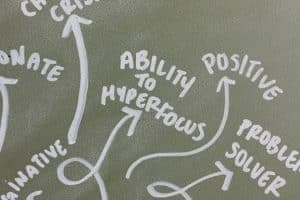Educational Gaming: Serious Play in Learning
The rise of educational gaming has transformed traditional learning methods and has become a popular tool for students and educators alike. Combining playfulness with education, this innovative approach is known as serious play and has proven to be an effective way of learning. From preschoolers to professionals, educational gaming has made its way into various fields, making it a powerful tool for learning. In this article, we will explore how educational gaming has become a serious play in learning and its impact on students and educators.
The Evolution of Educational Gaming
Educational gaming has come a long way since its inception. From the early days of basic educational games like “Oregon Trail” and “Math Blaster”, to the more advanced and immersive experiences like “Minecraft” and “Kahoot”, educational gaming has evolved to cater to different age groups and subjects. With the advancement of technology, educational games have moved from simple graphics and limited interaction to 3D simulations with virtual reality features.
“Play is the highest form of research.” – Albert Einstein
Serious play in education is based on the concept that learning and play are interconnected. It believes that students can learn better through engaging and interactive activities rather than traditional lectures and textbooks. This is where educational gaming comes into play. By incorporating game elements like competition, rewards, and immediate feedback, students are motivated to participate and learn.
The Impact on Students
The use of educational gaming has shown significant improvement in students’ learning outcomes. These games cater to different learning styles, making education more inclusive and engaging for all students. Visual learners can benefit from games with appealing graphics, while auditory learners can benefit from games with background music or narration. Furthermore, students can learn at their own pace and repeat levels until they have mastered the concept, promoting a growth mindset.
Moreover, educational gaming has also shown positive impacts on students’ soft skills like problem-solving, critical thinking, and collaboration. With the need to strategize and work together to solve challenges within the game, students develop these essential skills naturally.
The Role of Educators
While educational gaming can be a powerful tool for learning, it is essential for educators to incorporate it effectively in their teaching methods. Educators play a crucial role in guiding students and facilitating their learning journey through these games. They can provide context and bridge the gap between abstract concepts and real-life applications. Moreover, educators can use these games to assess students’ progress and provide targeted support to those who need it.
As technology continues to advance, educators are now able to create their own educational games, catering to the specific needs and learning objectives of their students. This allows for a more personalized and customized learning experience, making it more effective.
The Future of Educational Gaming
The potential for educational gaming is limitless. As technology continues to advance, the quality and variety of educational games will continue to improve. With the rise of virtual and augmented reality, educational gaming will become even more immersive and engaging, creating a whole new world for students to explore and learn.
Moreover, as the world moves towards a more digital era, educational gaming has the potential to bridge the digital divide and provide equal opportunities for all students to access quality education.
“The future of education is digital. The future of education is games.” – James Paul Gee
In Conclusion
Educational gaming has become a game-changer in the field of education. Through serious play, it has transformed the way students learn and has proven to be an effective tool in improving learning outcomes. The role of educators is crucial in incorporating educational gaming effectively in their teaching methods. With the limitless potential of educational gaming, it is clear that it will continue to revolutionize education and play a significant role in shaping the future of learning.










